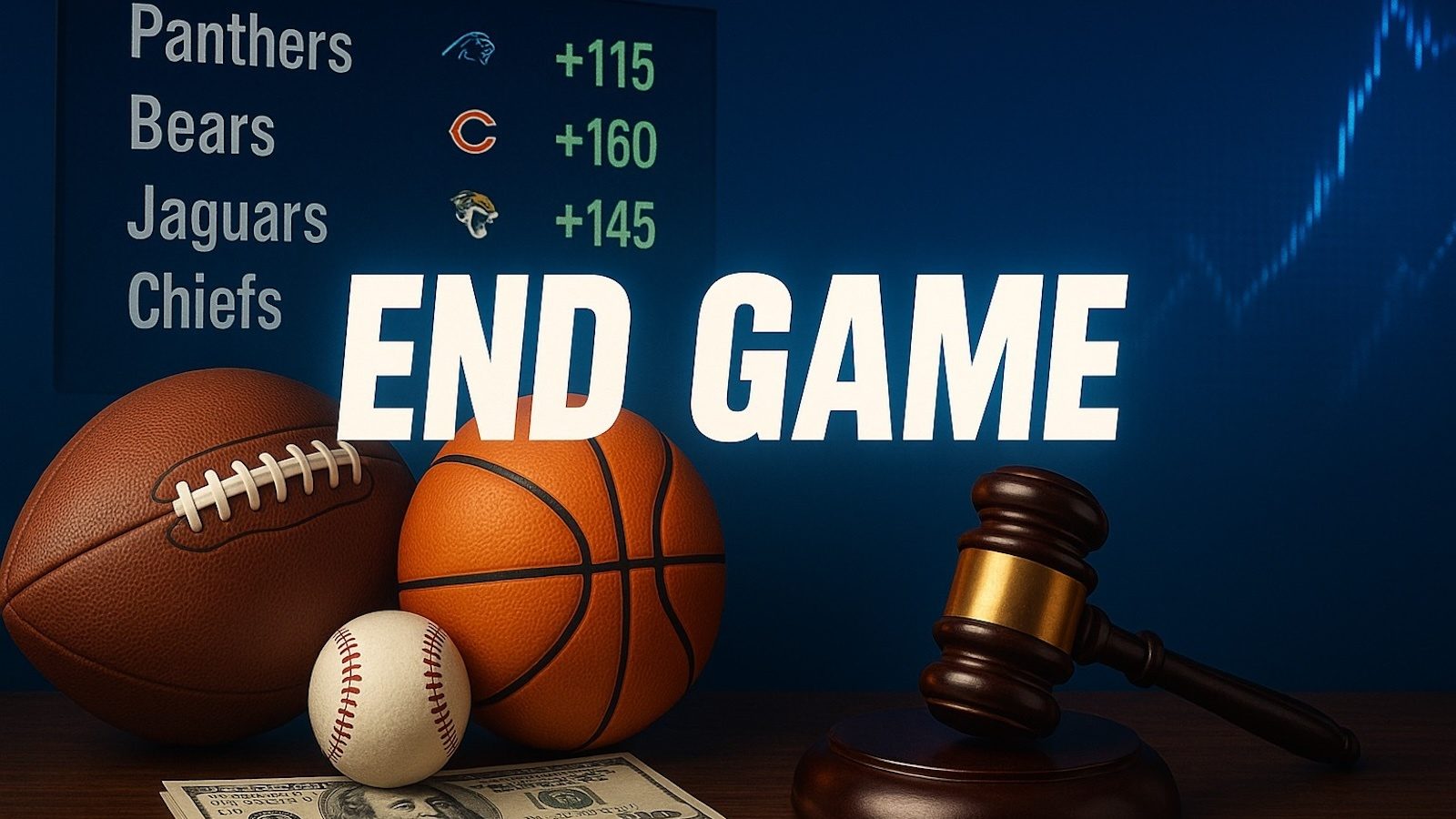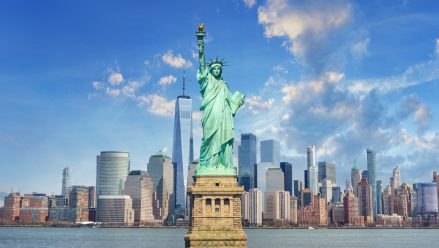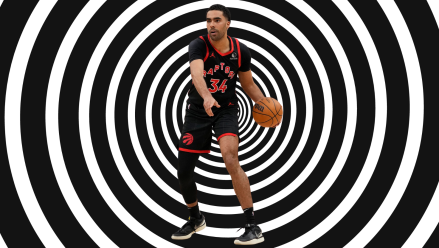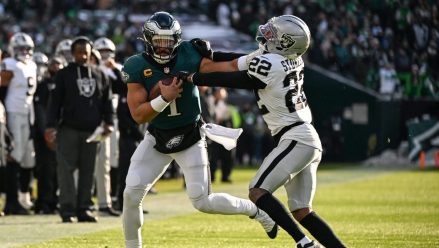The U.S. sports betting world moves quickly and unpredictably in 2025. In order to properly take stock of it all, we offer InGame’s “EndGame,” an end-of-week compilation of the top storylines, some overlooked items, and all the other news bits from this past week that we found interesting.
NCAA D1 committee: Betting on pros OK
The NCAA Division 1 Administrative Committee on Wednesday approved a proposal that would allow student-athletes and athletic department employees to bet on professional sports, marking a major departure from current rules.
The rule change would be implemented on Nov. 1 if the proposal is also adopted by the committee’s Division II and III counterparts. The current ban on betting on college sports and sharing insider information remains in place. For now, student-athletes and AD staff are prohibited from wagering on any sport sanctioned by the NCAA.
“The Administrative Committee was clear in its discussion today that it remains concerned about the risks associated with all forms of sports gambling but ultimately voted to reduce restrictions on student-athletes in this area to better align with their campus peers,” Josh Whitman, athletics director at the University of Illinois and chair of the committee, said in a release. “This change allows the NCAA, the conferences, and the member schools to focus on protecting the integrity of college games while, at the same time, encouraging healthy habits for student-athletes who choose to engage in betting activities on professional sports.”
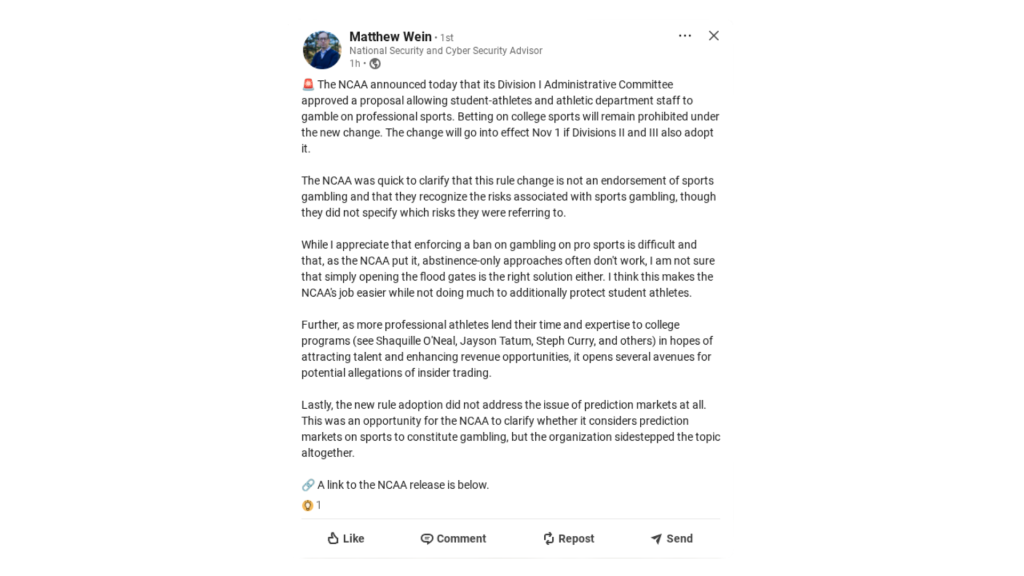
Dr. Deena Casiero, the NCAA’s chief medical officer, noted that “abstinence-only approaches” are not always successful for college-aged students and stressed the continued leveraging of education tools. The move comes as the NCAA has been awash in sports betting scandals and investigations, with three former Fresno State players banned and 13 players under active investigations at various schools.
“The enforcement staff continues to investigate and resolve cases involving sports betting quickly but thoroughly,” Jon Duncan, NCAA vice president of enforcement, said in a release. “Enforcement staff are investigating a significant number of cases that are specifically relevant to the NCAA’s mission of fair competition, and our focus will remain on those cases and those behaviors that impact the integrity of college sports most directly.”
Why Jefferies rates RSI a ‘buy’
Fresh off the Global Gaming Expo (G2E), Jefferies analysts David Katz and James Wheatcroft are rating Rush Street Interactive (BetRivers) a “buy,” writing Thursday that the company is “indexed more to soccer and tennis vs. the NFL which helps smooth the volatility compared to peers.” Translation? BetRivers takes fewer NFL wagers than its mostly bigger competition, like DraftKings, Fanatics Sportsbook, and FanDuel.
The pair also wrote that prediction markets are having a lesser effect on RSI’s bottom line because online sports betting is a “small part of the business.” RSI offers digital sports betting in 15 U.S. states and online casino in four states. RSI is a division of Illinois-based Rush Street Gaming, which has brick-and-mortar casinos in four states.
Jill R. Dorson
ESPN Bet fined for ‘risk-free’ Rece comment
More than a year after ESPN College GameDay host Rece Davis described a proposed college basketball pick as a “risk-free investment,” the Massachusetts Gaming Commission (MGC) on Wednesday fined ESPN Bet partner Penn Sports Interactive $15,000 for violating compliance standards.
That’s a pittance for a company with an enterprise valuation of $13.22 billion, but shelling out for the ill-advised quip will be symbolic. MGC levied the fine for Davis’ abuse of a rule outlawing “advertisements, marketing and branding in such a manner that is deceptive, false, misleading, or untrue, or tends to deceive or create a misleading impression whether directly, or by ambiguity or omission.”
Davis later described his comment as an attempt at humor.
Canadian ad-ban bill makes progress
S-211, the bill that would severely limit sportsbook and gambling advertising in Canada, advanced out of the Standing Senate Committee on Transport and Communications. The unamended bill is now on third reading for the full senate. The next opportunity for a vote will be Oct. 21.
The bill would task the Office of the Minister of Canadian Heritage with developing a national sports betting advertising framework that would “regulate sports betting advertising in Canada, with a view to restricting the use of such advertising, limiting the number, scope or location — or a combination of these — of the advertisements or to limiting or banning the participation of celebrities and athletes in the promotion of sports betting.”
Commercial digital sports betting is only live in Ontario, and since launch in 2022, the regulator there has already tightened ad guidelines in the province. S-211 would set a nationwide framework. The next province expected to introduce digital sports betting is Alberta, though a launch date has not been set.
Jill R. Dorson
Take that, Dan Patrick!
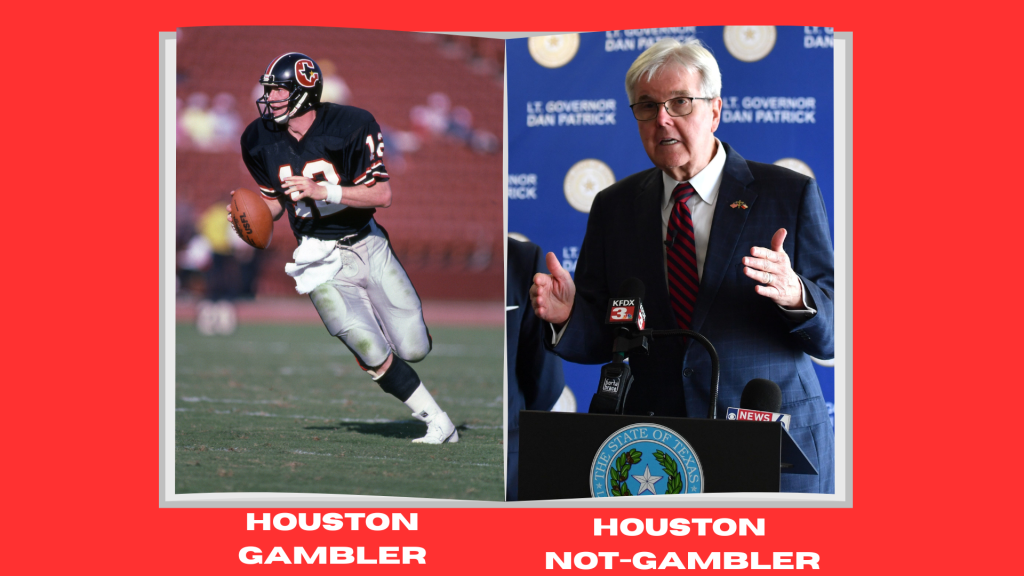
Finally, some positive gambling news out of Texas, despite the machinations of virulently anti-gambling Lt. Gov. Dan Patrick (above right), who effectively controls whether sports betting or casino legislation can even be considered there.
This is how scant good gambling news from Texas has become: The UFL Houston franchise just caught nostalgia and changed its name from Roughnecks to the USFL-vintage moniker Gamblers. Memories of Jim Kelly (above left), pre-Buffalo, come rushing in. If only some sports betting legalization would hit that gap.
The Gamblers convene under the new nickname in 2026. The Texas legislature doesn’t convene to — maybe — debate gambling expansion until 2027.
Is there a Nobel Prize for guessing right?
Some persons somewhere Thursday night had a thunderbolt of a notion that Venezeulan opposition leader María Corina Machado was going to win the Nobel Peace Prize. Or maybe they had some insider info.
Are we bothered by this? After all, prediction markets tout themselves as instruments of truth, and Polymarket nailed this one. Of note, click through the comments in the above post for an incredibly civil — by social media standards — discussion on the topic of insider information-peddling.

The Norwegian committee that oversees the administration of the Peace Prize has opened an investigation into the surge in trading. Kristian Berg Harpviken, who is head of the Nobel Institute, told Bloomberg: “It seems we have been prey to a criminal actor who wants to earn money on our information.”
We have a question for you
Check it out
Data point number 1.7 trillion proving that we need to let the reptiles have the planet back:
An online gambling influencer named FadeMeBets claims he’s found a verifiable system for winning WNBA wagers: calculating players’ menstrual cycles. Deemed “off-putting,” but also “possibly profitable,” by practitioners, the system is gaining popularity.
We’re doomed.
WIRED has the story.
Odds and ends
- The Alcohol and Gaming Commission of Ontario (AGCO) Tuesday fined theScore CA $105,000 after a bettor who should have been flagged as a potential problem gambler wagered CA $2.5 million over eight months. During that time, the bettor showed clear “loss-chasing” behavior, according to the AGCO.
- Sharp Alpha, an investment firm specializing in sports, gaming, and entertainment, announced Wednesday that it had raised $150 million intended for use over the next two years. Managing partner Lloyd Danzig deems online gaming and interactive entertainment businesses as “prime candidates” for this type of financing, according to a release.
- Fanatics Friday announced July 16-19, 2026 as dates for the third Fanatics FanFest, which will again be held at New York City’s Javits Center. The event is at the crossroads of betting, sports, collectibles, and fandom, and in 2025 featured more than 300 athletes and celebrities.
- Here is new “risk-free investment” strategy for Thursday Night Football after the Eagles’ shellacking by the Giants on Thursday night. (Don’t come at us, Massachusetts. We’re actually kidding.)
ICYMI on InGame
NYSE Owner Invests $2 Billion In Polymarket, Eyes Tokenization
Polymarket May Not Be Able To Relaunch In US Until Shutdown Ends
Kalshi Sues Ohio Regulator, AG Over Threat To Licensees About Working With Platform
Expect Prediction Market Lawsuits To Reach Supreme Court
Pennsylvania Gaming Head Warns That Prediction Markets Are ‘Significant Threat’
Responsible Gaming Lobbyist: Industry Must Put Money Where Its Mouth Is
PrizePicks Launches ‘The Feed’ As Gaming Apps Continue To Stress Social Aspects

